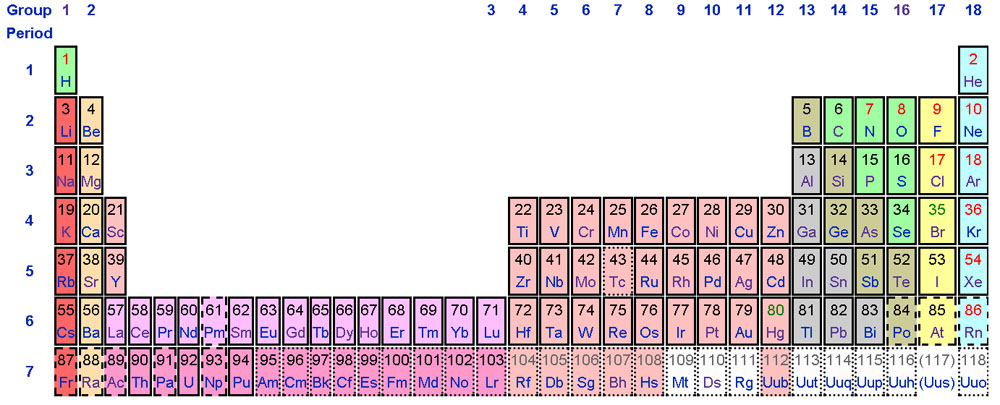G Block
Janet Kuypers
(from the “Periodic Table of Poetry” series, #119-184)
8/31/14
While researching cold fusion
to learn about my latest periodic table element,
I see a sentence to a link for
“Approaches to element 120 (Ubn, unbinilium)”,
and I think,
‘oh no,
this can’t be,
the periodic table only goes to element 118,’
so with dread
I follow the link
and realize
that scientists can’t be happy
with the elements they’ve discovered,
of course not,
so even though there’s no place
in the periodic table
for any new elements...
Well, wait a minute,
if they’re talking about element 120,
there has to be talk about element 119,
so I looked it up, and of course, Uue,
ununennium has a wiki web page too,
so I look at their supposed location
in the periodic table,
and they’re off to the left of the table
in two separate additional rows.
119 is in period 8, the s block,
just like its neighbor, 120.
Whatever that means.
(I mean really, haven’t I
done enough research
on these elements already?)
Oh but wait, they’re just to the left
of Hydrogen, which is also in that s block.
So the periodic table contains four blocks,
the s, p, d and f blocks, giving you
details about the atoms therein.
But then I see a link there
for the “extended periodic table”.
Of course. An extended periodic table.
So I look, and because all of these
are super-heavy elements, the theoreticians
(including Seaborg, who theorized about
many of these now postulated elements)
dropped this new set of twelve
121 and up elements
into the “g block.”
Yes, the g block.
Ask any prisoner in the g block,
and they’ll swear
the prosecution made everything up
to put them behind bars.
I wonder, if all of these elements
are still undiscovered,
how much of these g block elements
are these chemists really making up?
But as far as they can hypothesize, this g block
in the periodic table contains eighteen elements
with partially filled g-orbitals in each period...
I’ve read documents postulating
the first g block element’s at 121
that claim the hypothesized element
126 would be within an island of stability,
resistant to fission but not to alpha decay.
They’ve tried to create 119, 120, 121, 124, 126 and 127,
and some scientists once claimed
discovering an isotope of 122 occurring naturally...
But wait a minute, let me think about this:
if the g block is made of twelve elements,
that would mean the edge of the g block
is element one thirty two, and still
I’ve seen that “extended periodic table”
has Superactinides and Eka-?superactinides
listed all the way up to one hundred eighty four.
Razzin frazzin.
Mumble grumble.
Can elements even exist with that heavy a weight?
Isotopes of some synthetic elements
last only milliseconds, and as far as I know,
the only way these super-heavy synthetic elements
can be created is by smashing an atom
with a ton of neutrons into an atom
of a synthetic element (you know, like one
with a half life of only milliseconds).
Can scientists even be able to try
to create these only predicted
super-heavy synthetic elements?
Because it’s really unknown
how far the periodic table extends
beyond the discovered element 118.
But some predict that it ends at 128.
Some predict that it ends at 155.
Some first guessed
that the table couldn’t go past 137,
then later calculated the end was 173.
Oh, razzin frazzin,
with all these guesses
I can’t hear myself a-speechin’...
But I’m not quite sure any of these chemists
are sayin’ the right answers, either,
when everyone can only guess
if any more elements can even be created.
Okay, fine, I’m just a poet
trying to learn a thing or two,
to refresh my memory
on the periodic table
and keep my science know-how up to par.
Maybe I’ll just have to wait
until they actually discover
new elements,
and be content
when they discuss elements
in astronomy and science shows,
when I can actually understand
what they’re saying and think,
“wait, I think I knew that...”
Because okay, I’m only a poet,
and I welcome every new discovery as it comes
with open arms.
|










![]()
![]()
![]()
![]()
![]()
![]()
![]()
![]()
![]()
![]()
![]()
![]()
![]()
![]()

![]()



